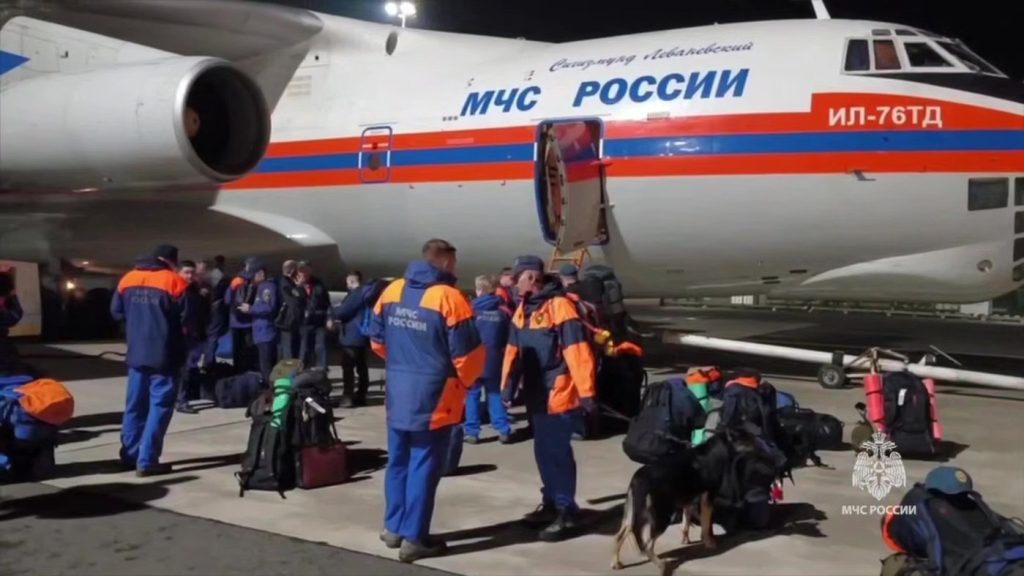BANGKOK (AP) — A powerful 7.7 magnitude earthquake struck Myanmar on March 28, 2025, leading to catastrophic consequences. As rescue operations continue, the military government reported that over 1,000 people have lost their lives, with the death toll reaching 1,002 and an additional 2,376 individuals injured. Furthermore, 30 people are still unaccounted for. The earthquake, which rocked the region at midday, was followed by several aftershocks, including a significant one measuring 6.4 in magnitude.
In Thailand, where the quake was felt acutely, particularly in the greater Bangkok area, six fatalities have been reported. The chaos left 26 people injured and a further 47 missing, sparking immediate rescue efforts across the affected areas. Many countries, including Malaysia, Russia, and China, have mobilized to send rescuers and relief teams to assist in recovery tasks.
Amid the ongoing crisis, the Russian government has stated that they dispatched 120 rescue workers to Myanmar to aid in the search for victims trapped in collapsed structures and assist with cleanup operations. Two aircraft, carrying rescue specialists, anaesthesiologists, psychologists, and canine units, left Moscow shortly after the earthquake.
Additionally, the chief executive of Hong Kong, John Lee, expressed condolences for the earthquake victims and announced the deployment of a rescue team to Myanmar. Taiwan's National Fire Agency confirmed readiness to deploy a team of 120 individuals, including rescuers, medical personnel, a veterinarian, and specialized equipment, although Taiwan and Myanmar lack official diplomatic ties.
China also quickly responded to the disaster, sending an additional 82 rescue workers from Beijing, following an earlier deployment from Yunnan province, which borders Myanmar. The Chinese civil relief squad, known as the Blue Sky Rescue Team, sent 16 members to Muse City in northern Myanmar to assist with relief efforts. Moreover, China has provided essential supplies, dispatching 80 tents and 290 blankets to support those affected.
Chinese President Xi Jinping reached out to Myanmar's leader, Min Aung Hlaing, to extend condolences for the tragedy. While the earthquake had a pronounced impact in Myanmar, parts of China’s Yunnan province did experience tremors; however, related casualties were limited to minor injuries among two individuals, with some structural damage reported.
New Zealand’s Foreign Minister, Winston Peters, announced support for relief initiatives through the International Red Cross Movement, expressing compassion for the victims and their families. Notably, New Zealand's foreign ministry confirmed that all embassy staff in Yangon and Bangkok were safe, with no reports of New Zealand citizens injured or killed.
South Korea is also stepping up its support, pledging $2 million in humanitarian aid to Myanmar. The South Korean Foreign Ministry stated that this aid would be routed through international organizations involved in recovery efforts, emphasizing their commitment to closely monitor the situation and potentially offer further assistance as required.
The widespread impact of this earthquake and the quick, international response exemplify the global solidarity in times of disaster. As rescue teams from various nations mobilize to assist in recovery efforts, the ongoing situation remains critical, and authorities work tirelessly to provide aid and support to those affected by this unprecedented tragedy.










